Dental Implant in Bangkok
Search and Compare the Best Clinics and Doctors at the Lowest Prices for Dental Implant in Bangkok
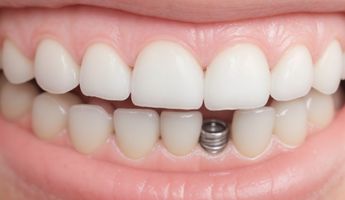
Find the best clinics for Dental Implant in Bangkok
With Medijump you can browse 107 facilities offering Dental Implant procedures in Bangkok. The cheapest price available is $83 in Bangkok
Dental Implant in Thailand
Price: $ 83
Dental Implant in Bangkok
Price: $ 83
Dental Implant in Rayong
Price: $ 695
Vietnam offers the best prices Worldwide
Price: $ 1
From 359 verified reviews
Ellie Carroll, 07 October 2022
I had a great experience at Bangkok International Dental Center (BIDC). The staff was friendly and accommodating. The doctor was knowledgeable, professional and thorough. I was very pleased with the results of my procedure. Highly recommend BIDC for anyone needing dental work.
From 3 verified reviews
Claudia, 19 June 2024
Great experience from start to finish. The dental professionals at BIDH are top-notch, and my tooth jewel looks incredible. Definitely worth it!
From 20 verified reviews
Kinley Dorjee, 20 December 2022
Newly opened hospital with great services for chronic diseases. Hospital provides IVF and IVN
From 48 verified reviews
Sana Khan, 05 March 2024
Our experience with IVF at Bangkok Hospital Bangkok was great and they made it clear what our expectations should be from the beginning. The fertility specialists and staff provided us with personalized care and support throughout. Their tech is really advanced, we hadnt seen some of this stuff in Aus and we have no doubt this contributed to our successful treatment. We are now expecting our first child and are so grateful to everyone at the hospital for making our dream of becoming parents a reality.
From 7 verified reviews
Elena, 22 July 2024
Smile Signature at Ratchada boasts modern, clean, and well-equipped facilities. Patients appreciate the clinic's investment in the latest dental technology, which enhances the quality of care.
From 24 verified reviews
Ilona, 28 June 2024
Excellent service and care! The dental crown procedure was quick and painless. The staff were incredibly kind and professional.
From 30 verified reviews
Robert Murphy, 22 December 2026
I had a great experience at Bangkok Smile Dental Clinic. The doctor was very knowledgeable and provided excellent care. He was thorough and took the time to explain everything to me. I am very pleased with the results and would highly recommend them.
From 12 verified reviews
Darcia, 23 July 2024
Many reviews highlight the gentle and patient approach of the dentists, making even the most anxious children feel comfortable during their visits.
From 10 verified reviews
Delphine, 16 July 2024
The dental implant procedure was smooth and painless. The staff was incredibly supportive throughout the proces.
From 9 verified reviews
Aster, 18 July 2024
My dental crown looks so natural, you can't even tell it's there.
From 9 verified reviews
Charlotte, 01 August 2024
The extraction process was quick and painless. The dentist explained everything clearly and made me feel at ease. Highly recommend.
From 8 verified reviews
Consuela, 26 July 2024
I had a fantastic experience at Thonglor Dental Hospital. The dental implant bar treatment was smooth and virtually painless. The staff were incredibly professional and attentive.
From 23 verified reviews
Andrew Ng, 05 January 2023
I recently visited Bangkok Smile Dental Clinic in Silom and was very impressed with their friendly staff, modern facilities and excellent service. They made me feel at ease, and I was very pleased with the results of my treatment. I would highly recommend them to anyone looking for a reliable and trustworthy dental clinic.
From 7 verified reviews
Maeve, 22 July 2024
The team at Smile Signature is fantastic! They made my dental X-ray experience so smooth and easy.
From 4 verified reviews
Pragtige, 02 August 2024
Great experience at Tantawan Dental Clinic. The dental bridge fits perfectly, and the entire team was very friendly
From 4 verified reviews
Fiona, 25 July 2024
I had an excellent experience at Smile Signature. The dentist was very thorough and took the time to explain everything. The staff was friendly and professional. Highly recommend!
From 2 verified reviews
Aaliyah, 18 July 2024
Had a bone graft done here and it was completely painless. The dentist was very gentle and explained everything clearly.
From 2 verified reviews
Adelita, 26 July 2024
The procedure was quick and painless. I love the results.
From 2 verified reviews
Kate Anderson, 13 February 2024
I was a little bit nervous when I walked in but the staff was very professional and helpful. The doctor was very kind and gentle. Amazing customer service!
From 2 verified reviews
Elaxi, 04 August 2024
I had a wonderful experience getting my dentures here. The process was smooth and painless.
Compare Before & After Photos of _procedure_photos.phpDental Implant

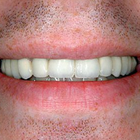
Front view


Front view
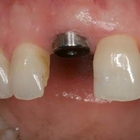
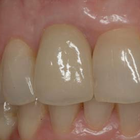
Front view
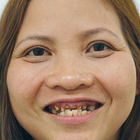

Front view


Front view
WHY US?
At Medijump, we're making medical easy. You can search, compare, discuss, and book your medical all in one place. We open the door to the best medical providers worldwide, saving you time and energy along the way, and it's all for FREE, no hidden fees, and no price markups guaranteed. So what are you waiting for?

Free

Best Price

Widest Selection

Risk-Free
What you need to know about Dental Implant in Bangkok

A dental implant is a medical device that provide support to artificial teeth. It's surgically placed into the jaw to act as a replacement for the root of a missing or damaged tooth, which in turn serves to hold a replacement tooth or bridge. It functions and looks much like a real tooth, restoring your ability to chew and improves your overall appearance. Dental implant surgery is considered as a better alternative to dentures or bridgework that does not fit well. It also offers a great option for people when they do not have enough natural teeth roots left to build denture or bridgework replacements.
Since dental implants eventually fuse with your jawbone over the span of several months, it won’t make noise, slip, or cause bone damage the way dentures or bridgework might. Dental implants also enable natural speech, look and feel like your own teeth, make eating easier, and improves your appearance. However, the surgery may involve several stages, and, in some cases, it may require two separate visits to the clinic to complete. Ensure to look for a specialist in a reputable clinic for the best results.
What is the cost of Dental Implant in Bangkok?
Price differences abound in Bangkok for Dental Implant based on the clinic, the proficiency of the surgeon, and the individual requirements of the patients. It's essential to realize that dental insurance usually doesn't cover the entire bill for this treatment, though it might cover a part. Several dental clinics provide finance schemes or payment alternatives to assist in easing the financial burden. For more precise cost estimates, reach out to your dental service provider or a nearby clinic.
What does a Dental Implant Procedure Involve?
Dental implant surgery generally requires several stages. Each stage may be performed under general or local anesthetic. The first stage is removing the damaged tooth. Then, if your jawbone is too soft or not thick enough, your dentist may perform bone grafting to create a more solid base for the implant. The bone graft may be natural (taken from another part of your body) or synthetic (a bone-substitute material). If you only need minor bone grafting, the implant surgery can be performed on the same day. However, if you need a significant amount of bone graft, the implant surgery may have to be postponed until the transplanted bone grows enough new bone to support the dental implant.
The next stage after the damaged tooth removal and bone graft (if you need one) is placing the dental implant. To do this, your dentist makes an incision to expose the bone and puts the metal implant post deep into the bone. At this stage, you will still have a gap where your tooth is missing. Your dentist will place a temporary denture for appearance. Once the metal implant post is placed, osseointegration begins. This is a process where the jawbone grows into the surface of the implant and can take several months to complete. After osseointegration is complete, your dentist will place the abutment, which is a small connector post that will hold your new tooth. The final stage, after the abutment is placed, is placing the crown, which is the tooth-looking part. You can choose between a removable crown and a fixed crown.
How Long Should I Stay in Bangkok for a Dental Implant Procedure?
The length of your stay in Bangkok for a Dental Implant depends on numerous considerations like the intricacies of the procedure, the quantity of implants required, and your personal recovery process. Each stage of dental implant surgery is done in separate appointments. After each appointment, you should be able to leave the hospital or clinic right away. However, you should stay in Bangkok for at least 2 weeks for completion of the work, the initial recovery time, and follow-up checkups.
What's the Recovery Time for Dental Implant Procedures?
The recuperation duration following a Dental Implant or dental implant operation can widely vary and is shaped by multiple aspects. Initial healing of the tissue might require only a handful of days, but complete osseointegration (the fusion of the implant with the jawbone) generally spans several months. This window could be extended for patients requiring auxiliary procedures such as bone grafts, or those with prevailing health issues that may impede the healing process.
Post-procedure, it's not unusual to experience a degree of discomfort, which could manifest as minor pain, swelling of your gums and face, skin and gum bruising, and slight bleeding. Such symptoms are a standard phase of the recovery process and should alleviate within a fortnight. In this interim, it's advisable to stick to a soft diet to not overload the implant site with undue pressure. Any strenuous physical exertion should be put off to circumvent potential complications.
Maintaining excellent oral hygiene is paramount to facilitate healing and stave off infection. Regular brushing and flossing, being particularly gentle around the surgical area, coupled with rinsing your oral cavity with warm saline water, can contribute to keeping the region hygienic.
What sort of Aftercare is Required for Dental Implant Procedures?
After each stage of surgery, you may have to eat soft foods. Since you may experience swelling, bruising, pain, and minor bleeding, your dentist will prescribe pain medications or antibiotics to help ease your discomfort. During your recovery period, you need to avoid smoking as it can contribute to implant failure and complications.
No special care is required for dental implants. Nonetheless, you need to practice good oral hygiene in order to maintain the implant and your remaining natural teeth. Make sure to brush your teeth twice a day, floss daily, and rinse your mouth with an antiseptic mouthwash. You also need to see your dentist regularly and avoid damaging habits, such as chewing hard items.
What's the Success Rate of Dental Implant Procedures?
The efficacy of Dental Implant, alternatively referred to as dental implants, in Bangkok, is typically impressive, boasting effectiveness percentages as high as 98% in some studies. This positions dental implants as one of the most reliable procedures within dental care's realm. Nevertheless, it's worth mentioning that the success rates might fluctuate, influenced by several factors.
The patient's overall health is a key determinant of the thriving outcome of a dental implant procedure. Individuals exhibiting optimal health usually witness higher success rates. Pre-existing health issues like diabetes, osteoporosis, and periodontal ailments can theoretically impact the efficacy of the implant.
Additional contributing factors to the success rate encompass the quality and abundance of the individual's bone structure. Patients boasting plentiful, healthy bone are ordinarily the perfect candidates for dental implants. However, those who have experienced bone loss might need to undergo a bone grafting procedure before the implant procedure. This step can provide a robust base for the implant and enhance the chances of a successful result.
Are there Alternatives to Dental Implant Procedures?
If you are not a candidate for dental implant surgery, or you simply do not want to undergo the procedure, you can opt for the alternatives. The alternatives include:
- Mini dental implants, which is a small type of dental implants. The structure is similar to regular dental implants, but are somewhat smaller in size. Unlike regular dental implants, dentists can often place mini implants only in one visit using local anesthesia. You may also be able to use your new teeth on the same day.
- A same-day implant is essentially similar to traditional dental implants. However, your dentist performs the whole process in just one day, skipping the process of wound healing and osseointegration.
- Implant-supported dentures or All-on-4 is an alternative if you need to fix a complete upper or lower set of teeth. During this procedure, four to six implants are placed into your jawbone as a base to attach and stabilize your denture.
What Should You Expect Before and After the Dental Implant Procedure?
Grasping what lies ahead before and post the Dental Implant can lessen potential worries and guarantee you are fully equipped for the upcoming journey. Prior to the procedure, your dental practitioner will conduct an all-inclusive dental assessment. This check-up may encompass dental X-rays and sophisticated 3D imaging to examine the status of your oral cavity.
The dental professional will also explore your medical history. If you're suffering from specific heart disorders or orthopedic implants, your dental practitioner might suggest antibiotics to avert infection. A personalized treatment blueprint, customized to your circumstances, will be constructed. This strategy takes into account factors like the amount of teeth you need substituted and the state of your jawbone. The procedure is typically carried out under local anesthesia to mitigate any discomfort.
Subsequent to the operation, experiencing slight unease is usual. You might witness inflammation of your face and gums, discoloration of your skin and gums, soreness at the insertion area, and insignificant bleeding. Your dental specialist will recommend medications to soothe these indicators. In case inflation, unease, or any other complications intensify in the days post-operation, it's crucial to reach out to your oral surgeon. Post-operation will require you to consume mushy foods as the operated site recovers. Moreover, you'll be guided to abstain from smoking, as it can hinder recovery and influence the triumph of the dental implant.
Following the positioning of the implant, the healing process, and fusion with the bone (osseointegration) transpire over an extended period. During this interval, maintaining robust oral cleanliness is vital. This involves frequent brushing, the use of dental floss, and cleansing with an antibacterial mouthwash. Periodic dental examinations are obligatory to track progress and confirm the well-being and effectiveness of the implant.
What are Potential Risks of Dental Implant?
Despite Dental Implant boasting remarkable effectiveness, it is, as any surgical operation, not without risks and potential difficulties. The chances of encountering these issues are often minute and irregularities are infrequent, yet it remains critical for patients to comprehend these possibilities before undertaking the procedure.
Complications and side effects may include:
- Implant failure
- Nerve injury
- Infection
- Sinus problems
- Damage to surrounding structures, such as other teeth or blood vessels
How long does a Dental Implant last?
The durability of a Dental Implant is heavily reliant on the individual's oral cleanliness and general wellbeing. Nonetheless, with appropriate upkeep and care, dental implants have the potential to stand the test of time. The titanium pillar inserted into the jawbone during surgery is crafted to be everlasting, while the dental cap fastened to the anchor may necessitate substitution every decade or decade and a half due to normal usage. Yet, with outstanding dental management and habitual screenings, the cap has the potential for lifelong endurance.
Whilst the information presented here has been accurately sourced and verified by a medical professional for its accuracy, it is still advised to consult with your doctor before pursuing a medical treatment at one of the listed medical providers
No Time?
Tell us what you're looking for and we'll reachout to the top clinics all at once
Enquire Now

Popular Procedures in Bangkok
Prices Start From $1

Prices Start From $1

Prices Start From $48

Prices Start From $1

Prices Start From $1

Prices Start From $11

Prices Start From $1

Prices Start From $45

Recommended Medical Centers in Bangkok for Dental Implant

- Interpreter services
- Translation service
- Religious facilities
- Medical records transfer
- Medical travel insurance
- Health insurance coordination
- TV in the room
- Safe in the room
- Phone in the room
- Private rooms for patients available

- Interpreter services
- Translation service
- Religious facilities
- Medical records transfer
- Medical travel insurance
- Health insurance coordination
- TV in the room
- Safe in the room
- Phone in the room
- Private rooms for patients available

- Interpreter services
- Translation service
- Religious facilities
- Medical records transfer
- Medical travel insurance
- Health insurance coordination
- TV in the room
- Safe in the room
- Phone in the room
- Private rooms for patients available

- Interpreter services
- Translation service
- Religious facilities
- Medical records transfer
- Medical travel insurance
- Health insurance coordination
- TV in the room
- Safe in the room
- Phone in the room
- Private rooms for patients available

- Interpreter services
- Translation service
- Religious facilities
- Medical records transfer
- Medical travel insurance
- Health insurance coordination
- TV in the room
- Safe in the room
- Phone in the room
- Private rooms for patients available

- Interpreter services
- Translation service
- Religious facilities
- Medical records transfer
- Medical travel insurance
- Health insurance coordination
- TV in the room
- Safe in the room
- Phone in the room
- Private rooms for patients available

- Interpreter services
- Translation service
- Religious facilities
- Medical records transfer
- Medical travel insurance
- Health insurance coordination
- TV in the room
- Safe in the room
- Phone in the room
- Private rooms for patients available

- Interpreter services
- Translation service
- Religious facilities
- Medical records transfer
- Medical travel insurance
- Health insurance coordination
- TV in the room
- Safe in the room
- Phone in the room
- Private rooms for patients available

- Interpreter services
- Translation service
- Religious facilities
- Medical records transfer
- Medical travel insurance
- Health insurance coordination
- TV in the room
- Safe in the room
- Phone in the room
- Private rooms for patients available

- Interpreter services
- Translation service
- Religious facilities
- Medical records transfer
- Medical travel insurance
- Health insurance coordination
- TV in the room
- Safe in the room
- Phone in the room
- Private rooms for patients available
Dental Implant in and around Bangkok
About Bangkok
Bangkok is the Capital city of Thailand and is ranked as one of the world’s most popular holiday destinations. The city holds a magical spell over its visitors and is full of beautifully decorated Buddhist temples, Royal palaces, museums, restaurants, and nightlife. Recently, the city has become the gateway to a large number of medical tourists. According to a BBC report, more than 80% of all medical tourists travel to Thailand, aiming to get the best medical attention, of which Bangkok and Singapore remain the most popular destinations for expats. The trend is increasing by 10% to 15% per year and has been a strong economic driver for the country, next to the tourism industry.
Medical tourism in Bangkok is highly rated within the industry for many reasons, including:
Cost-Efficient Treatments
Experienced Medical Professionals
Top-Tier Facilities
Advanced Technology
Quality Dental Care: Short Waiting Times
Comfortable Recovery:
Popular areas in Bangkok
For starters, Bangkok is a well-developed city. There are plenty of places to stay; shop and explore and deciding where you want to stay can be a difficult decision.
One way to choose the place you will likely stay is to prioritize your activities. For example, if you want to shop then Sukhumvit may be the right district. This 18-kilometer long road is the commercial center and some of the best shopping malls and retail markets are dotted along this road.
The Siam district would be a great place to stay as the more popular and trendy shopping centers can be found here with a great selection of restaurants. There are various other attractions too, the Siam Ocean World, Kidzania, Erawan Shrine, Madame Tussauds, and the BACC, Bangkok's biggest art gallery, and cultural center.
Other popular tourist locations are Sukhumvit, Pratunam, Silom, Chinatown, Khaosan and the famous Bangkok Riverside.
Weather and climate in Bangkok
Bangkok endures a tropical monsoon climate, it is hot and humid for the vast majority of the year with temperatures reaching thirty degrees centigrade. The best weather for visiting tourists in Bangkok is experienced between December and February as the temperature is much cooler and
There are three seasons in Bangkok –
-
The hot season that stretches from March to June
-
The Monsoon or the rainy season, which starts in July and lasts until October
-
The cool season is generally late November and ends late February.
Getting around in Bangkok
There are two airports that serve Bangkok. All the international flights land at Suvarnabhumi International Airport and almost all of the domestic carriers, operate from Don Mueang Airport.
It takes sixty minutes to travel between the two airports and you must check with the airlines which airport your carrier is operating out of. You must also remember to check in for your flight at least two hours in advance to avoid the last minute rush.
Within the city, sky-trains and the underground MRT trains are the best ways to avoid heavy traffic. Taxis and tuk-tuks can also be used for shorter journeys around the city. Most taxis have meters, and you should avoid any that don't to protect yourself from scams. Ask your hotel to help you call for a cab, as they often have relationships with trustworthy companies. For a scenic view of the city, try hopping on a riverboat down the Chao Phraya River.
Tourist Visas in Bangkok
If you wish to visit Bangkok, you will have to go to your nearest Thai embassy to get a visa. The Thai government has a bilateral trade agreement with various countries. It allows citizens of 64 countries to enter without any visa. They can stay for a maximum period of thirty days before having to leave the country.
The latest price for a tourist visa to Thailand depends on the type of visa you apply for and your nationality.
For citizens of most countries, the following visa fees apply:
- Single-entry visa: 2,000 THB (approximately $65 USD)
- Multiple-entry visa: 4,000 THB (approximately $130 USD)
You can pay the visa fee in Thai baht (THB) at the Thai embassy or consulate where you apply for your visa.
To apply, you’ll need to visit a Royal Thai Embassy or Consulate in your home country. Required documents typically include:
- A valid passport with at least six months remaining before expiration
- A completed visa application form
- One recent passport-sized (4 x 6 cm) photographs
- Round-trip air ticket or e-ticket (paid in full)
- Proof of sufficient funds to cover your expenses (at least 10,000 THB per person or 20,000 THB per family)
- Proof of Hotel or private accommodation booking
Be sure to apply at least four weeks before your travel date. You can make your application online at the Thai E-Visa official website https://thaievisa.go.th/.
Additional Information
-
The local currency is the Thai Baht. Before you travel to Bangkok, it is advisable that you arrive with local currency. Your currency is exchangeable at most banks in Bangkok and at exchange bureaus. You will have to look out for specialized signboards that read “Bureau De Change”. 1 US Dollar is roughly 34.5559 THB as 2023. Exchange of foreign currency at the airport is also possible and it may not be at the best rate possible.
-
Bangkok banks and retail outlets accept all types of credit and debit cards. There are ATMs in most of the popular places for the convenience of tourists. Hotels and restaurants also accept credit and debit cards. Tipping is mandatory at ten percent of the value of the goods and services.
-
Thai is the official language of the country. Nevertheless, a majority of the population will speak and understand English.
-
Buddhism is the official religion of the city and yet nowhere else in the world will you find a sterling example of cultural diversity. A massive 94 percent of the city’s population practices Buddhism and the remaining six percent follow the other world religions such as Islam, Hinduism, and Christianity.
-
There are a lot of festivals and holidays celebrated in Bangkok. The Gregorian and the Chinese New Year are the major festivals. A host of Buddhist festivals such as the Makha Bucha Day and the Visakha Bucha Day are also celebrated. Important dates in relation to the royal family are also prominent as the people celebrate the coronation day of the Monarch.
Popular Searches
- Plastic Surgery in Thailand
- Dental Implants in Thailand
- Hair Transplant in Thailand
- Breast Augmentation Thailand
- Gastric Sleeve in Thailand
- Gender Reassignment Surgery in Thailand
- Laser Hair Removal in Bangkok
- Botox in Bangkok
- Dermatology in Bangkok
- Breast Augmentation in Bangkok
- Coolsculpting in Bangkok
- Veneers in Turkey
- Hair Transplant in Turkey
- Rhinoplasty in Turkey
- Stem Cell Therapy in Mexico
- Rhinoplasty in Mexico
- Liposuction in Mexico
- Coolsculpting in Tijuana
- Rhinoplasty in Korea
- Scar Removal in Korea
- Gastric Sleeve in Turkey
- Bone Marrow Transplant in India
- Invisalign in Malaysia
- Plastic Surgery in the Dominican Republic
- Tummy Tuck in the Dominican Republic
- Plastic and Cosmetic Surgery in Poland
- Rhinoplasty in Poland
- Hair Implant in Poland
- Dental Implants in Poland
- IVF in Turkey



















